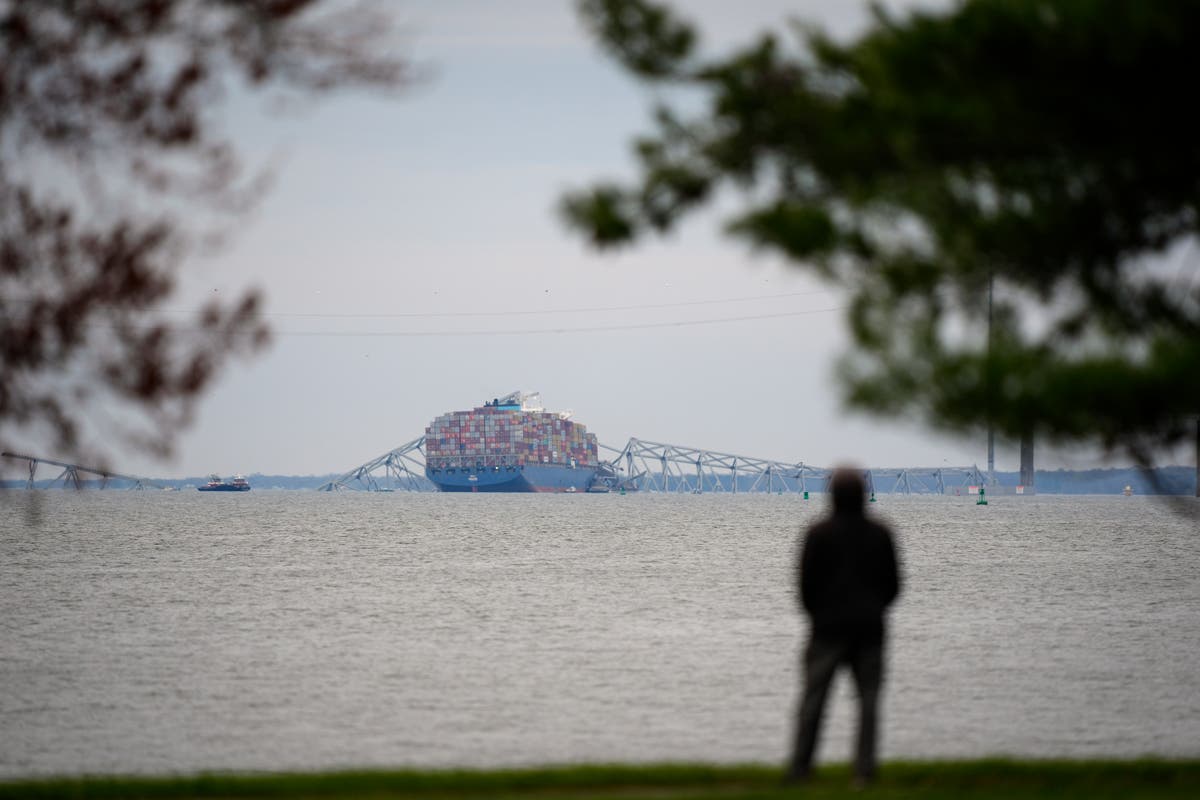Generations of working-class Marylanders watched in disbelief this week as an iconic symbol of their maritime culture crumbled into the Patapsco River
Generations of Maryland workers — longshoremen, seafarers, steelworkers and crabbers whose livelihoods depend on Baltimore’s port — watched in disbelief this week as an iconic symbol of their maritime culture crumbled into the Patapsco River.
The deadly collapse of the historic Francis Scott Key Bridge has shaken Baltimore to its core.
“What happened was kind of a travesty,” said Joe Wade, a retired port worker who remembers fishing near the bridge as a child. “I’m not a crier, but … I got emotional.”
Baltimore was a port long before it was incorporated as a city — and long before the United States declared its independence from Britain. Many of the city’s brick rowhouses were built to house fishermen, dockworkers and sailors. They earned a reputation for being pioneering and tough, unafraid of rough seas and long days.
It’s a cultural identity that persists among modern-day watermen like Ryan “Skeet” Williams, who makes a living harvesting crabs from the Chesapeake Bay.



Don’t you think that’s an uncharitable analysis? Joe Wade never said anything like what you’re suggesting he did, and the journalist wanted to provide supporting context for the headline’s claim about a lost piece of Baltimore cultural identity. We also do not have access to the full interview, only a single line of it–Wade could have said something about the workers, only for the journalist to omit it because that is not what the article is about. The interview would have been very different, with different questions and different answers and a different person being interviewed, if the topic had been the people who died rather than the culture of the city.
I know you’re capable of better reading comprehension and media literacy than this, and I don’t think you hold a personal grudge against Joe Wade, so what’s going on in your personal life to make you have such a negative presupposition about the world?
Fine, then the journalist is the callous one. One of those two people suggested that the loss of the bridge is a bigger deal than the loss of life. And whichever one of them did so is the one I am criticizing.
No, no one ever suggested that. That is an entirely new sentence that you made up. The only thing that was said is that a person cried, and that that same person fished by the bridge as a child. People can feel emotions for more than one reason at a time.
For real, what is going on in your personal life?
Well, you can start here if you’re actually interested: https://lemmy.world/post/12194311
You can move on to here: https://lemmy.world/comment/8841531
Then to here: https://lemmy.world/post/13606683
That will take you from January of 2023 to last Wednesday.
But I doubt you’re actually interested.
Lemmy is small enough that we can care about each other here, man :) I did read it, and man that really fucking sucks. I’ve been through some similar stuff before, both with severe food aversion and having a narcissistic parent. I understand why you have a negative view of the world right now, and I hope that your circumstances improve. I also hope that you’re able to look at the world more charitably regardless of your circumstances, although I think you’ve got bigger things on your mind right now than emotional growth and that it’s totally reasonable for you to prioritize your physical health.
Thank you.
It is a weird take. There were stories after 9/11 about Sirius the K-9 patrol dog that died in the attacks, but no one was claiming this coverage meant that the dog’s life was more important than the many human lives lost. After the initial reporting on the actual events, journalists very often turn to interest stories about very specific aspects and effects of the event. Like, almost every time a major catastrophe happens.